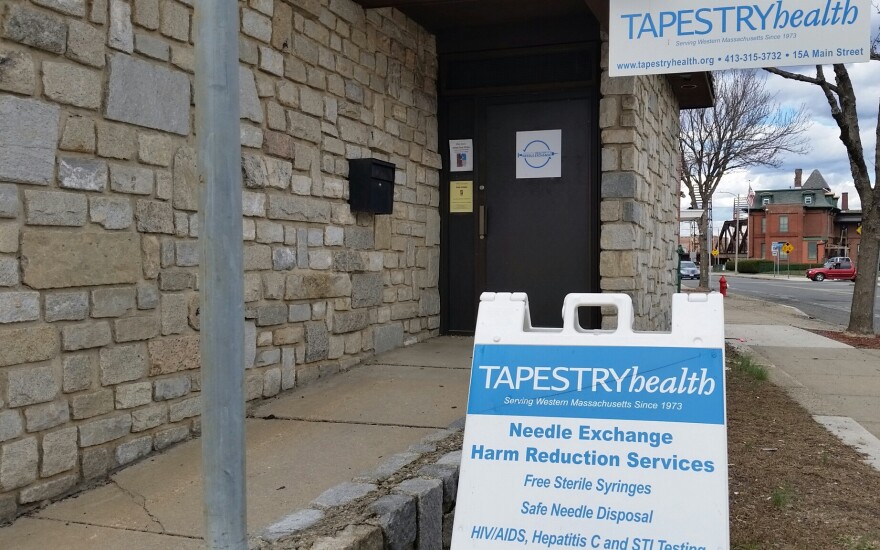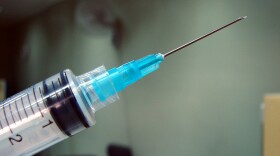The opioid crisis has prompted officials in the third-largest city in Massachusetts to revisit establishing a needle exchange program.
More than 20 years ago, the Springfield City Council rejected a program that allowed people to turn in used hypodermic needles in exchange for clean ones as a means to reduce the spread of the HIV virus, hepatitis C, and other diseases.
Mayor Domenic Sarno, who as a city councilor in 2005 opposed the program, said his thinking about it has changed.
"I will keep an open mind," said Sarno. " My thought process has evolved on this."
In a written statement issued by his office, and in an interview, Sarno said his willingness to now explore the issue of needle exchange in Springfield is a result of the opioid crisis.
" Absolutely this opioid crisis is a public health crisis that has destroyed lives, relationships, and families," said Sarno.
Sarno said his support is contingent on state funding for more treatment beds in Springfield for drug addicts.
" I want structured wraparound services with ( treatment) beds for Springfield individuals and families," explained Sarno.
The city’s Public Health Council is accepting written comments until February 9th and will take an advisory vote.
Massachusetts has allowed state-sponsored needle exchange since 1993. There are now programs in more than a dozen locations including Northampton, Greenfield, and Holyoke.
In 2016, Republican Governor Charlie Baker signed a state budget that included a provision giving local health boards the authority to approve needle exchange programs.
Last year, the Massachusetts Supreme Judicial Court ruled that privately-sponsored needle exchange programs can operate without local approval.
Opponents of needle exchange programs contend it encourages drug use.
Democratic State Rep. Carlos Gonzales of Springfield said his concern is where in the city the program would operate.
" It should not be in low-income neighborhoods," said Gonzales. " We don't need to have more congregating of programming in one neighborhood."
In Holyoke, where a needle exchange program began in 2012, Democratic State Rep. Aaron Vega said it has been a success.
" It does work," said Vega. " Does it work overnight? No. But we have seen a lot of transmitted disease numbers in Holyoke go down and I think needle exchange is one aspect of that."
Lately, some activists have pushed for Massachusetts to create spaces where drug addicts can inject illegal substances, such as heroin, under the supervision of a staff trained to prevent fatal overdoses.
Asked about it at a public hearing last week, Baker said he is skeptical.
Sarno said he is flatly opposed.
" I am not in favor of the injection sites. That I am not in favor of," said Sarno.
A bill filed by Massachusetts Democratic Sen. William Brownsberger would allow state health officials to permit “supervised injection sites.” It has just over a dozen co-sponsors out of the more than 200-member legislature, according to the Associated Press.








